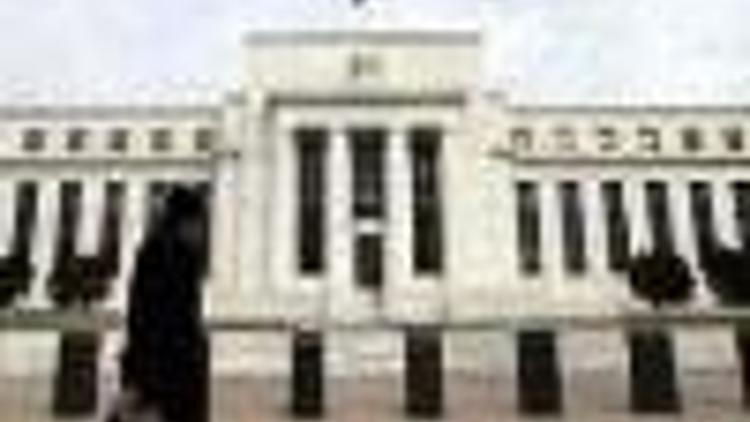Top Fed policy-maker urges to raise rates as quickly as possible
Güncelleme Tarihi:

The Federal Reserve should raise interest rates toward their "neutral" setting as quickly as reasonably possible to prevent high inflation taking root, a top Fed policy-maker said on Wednesday.
"To the extent that the economy as we watch it ... avoids recession, and to the extent that you watch commodities, you do want as quickly as possible to get back to neutral," said Federal Reserve Bank of Kansas City President Thomas Hoenig.�
"If you can do that, the implications for the long run are much more favorable in terms of inflation expectations and how it gets embedded into the economy," he said in an interview.
The "neutral" level of interest rates is the point where monetary policy neither helps nor hinders growth. It is hard to pinpoint, but is above the Fed's current rate setting of 2 percent, which Hoenig said was stimulating the economy.
"Two percent is accommodative; 2-1/2 percent is accommodative. So there is room to move back toward neutral without becoming tight, and without being neutral," he said.
"The goal is to get to neutral without tanking the economy. I think that it is important that we do that as reasonably soon as we can," he said, speaking in his 14th-floor corner office of the bank's imposing new headquarters, about 1-1/2 miles from downtown Kansas City.
However, he does not anticipate a speedy return to strong United States growth. The economy will be tepid this year and into 2009, and Hoenig said it might be 2010 before it achieved long-term trend-like levels around 2.5 percent.
"Given these rebates, we may avoid a recession," he said, referring to government checks delivered to U.S. households under a fiscal stimulus package worth well over 100 billion dollars. "But the fact is that we are going to be growing at less than potential for the rest of this year and into next year."
Hoenig, a former bank supervisor who keeps a pair of binoculars handy to remind financial institutions that he can see what they are up to in their city skyscraper offices, has been president of the Kansas City Fed since October 1991.
That means he is among the longest-serving members of the Fed's rate-setting committee, although he is not a voter this year. He is generally reckoned as one of the more hawkish Fed policy-makers and dissented against a quarter-point rate cut in October 2007, when the Fed lowered rates to 4.5 percent.
INFLATION RISKS
"Monetary policy is something that you do now that effects inflation in the future, not today. And that is why I think it is important to understand that we are in an accommodative position and the implications of that ... is the inflation we have will most likely continue in the future," he said.
The Fed last month halted an aggressive rate cut campaign begun in September to shield the economy from a housing crisis and warned that risks to inflation had grown. But analysts are unsure how long they will hold rates unchanged.
Hoenig said the timing of rate hikes depends to a degree on financial institutions resuming normal lending practice as markets regain their poise and consumer confidence returns.
Low interest rates cannot achieve this goal alone.
"You expect too much from monetary policy if you think it can solve the problem, and if you try and make it solve the problem, you create a new set of problems," he warned.
At the same time, inflation risks were rising.
"You have an environment of policy that is accommodative on a global basis and the implications for inflation are that the risks are higher. That is a fact. That is not speculation," he said. "The world's central banks have to act accordingly. I am sure they will."
Inflation has been spurred by soaring energy and food costs driven in part by demand from India and China.
The Fed hopes these prices will not continue to keep rising but Hoenig warned that low interest rates might allow what would otherwise be a temporary gain in the relative price of commodities to spill into broader, lasting inflation.
"Monetary policy is the vehicle that makes it more than temporary, if you are in an accommodative position, which we are. And that (factor) we have to balance and be aware of as we think about ... real growth in the economy," he said.

